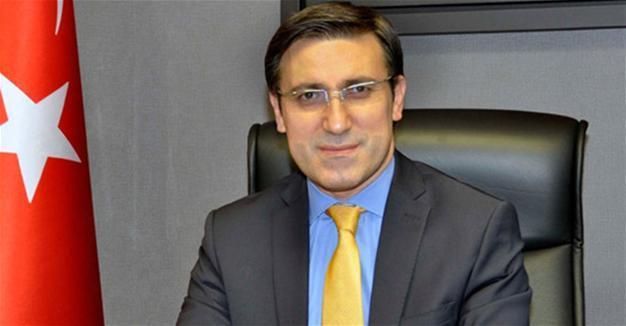Turkish gov’t to ease detention rules to avoid Council of Europe censure
Sevil Erkuş - ANKARA
 The government is preparing a new decree law supposedly to restore fundamental rights the under state of emergency, after the Parliamentary Assembly of the Council of Europe (PACE) moved to degrade Turkey’s status and reopen its monitoring process, as was the case in the 1990s.
The government is preparing a new decree law supposedly to restore fundamental rights the under state of emergency, after the Parliamentary Assembly of the Council of Europe (PACE) moved to degrade Turkey’s status and reopen its monitoring process, as was the case in the 1990s.The new decree law, which the government is trying to finalize and release before next week’s PACE gathering, will include arrangements addressing the current 30-day detention period, accessing lawyers within five days, and paving the way for domestic remedies over state of emergency practices, Talip Küçükcan, the head of Turkish delegation to the Parliamentary Assembly of the Council of Europe (PACE), told the Hürriyet Daily News on Jan. 19.
Turkey under post-monitoring dialogue
Turkey was under PACE monitoring procedures from 1996 to 2004, after which the monitoring ended amid government reforms in the early 2000s.
Ingebjørg Godskesen and Marianne Mikko, the co-rapporteurs of PACE, conducted a fact-finding visit to Turkey in Jan. 9-13 within the context of post-monitoring dialogue and held meetings concerning the failed coup attempt, the implementation of the state of emergency and related decree-laws, recent institutional developments, and measures affecting the functioning of parliament, the judicial system, civil servants, military and law enforcement personnel, the media and local administrations.
Godskesen and Mikko will submit a report on the PACE General Assembly conventions in late April or in June, and Küçükcan said a debate on the question of re-opening the monitoring process with Turkey should be made after the report is presented.
“I will tell my interlocutors about developments in Turkey. There could be positive developments. A new decree law in response to the concerns of the Council of Europe is on the agenda,” stated Küçükcan, a ruling Justice and Development Party (AKP) deputy.
He said the government expects the release of the new decree law “in the coming days before the general assembly gathering.” He added that he will inform PACE MPs on Jan. 19 about the upcoming law, which aimed to address certain concerns even without addressing all criticized state of emergency practices.
On Jan. 23, PACE will decide on whether to take an urgent debate call by some MPs onto the agenda of a general assembly convention on Jan. 26.
AKP deputy: Debate environment in PACE is biased
Meanwhile, Küçükcan also claimed that there is a “biased” atmosphere in the PACE with regard to Turkey.
“Only a few MPs have contacted us since the failed July 2016 coup attempt. Those who do often bring incidents happening in the southeast to the agenda. Unfortunately, they asses what has been happening in Turkey with an ideological perspective. We are trying to break this prejudiced perspective,” he said.
Emergency decrees issued under the state of emergency in the post-coup attempt period have extended the allowed period of police detention without judicial review to 30 days from four, while allowing the authorities to deny detainees access to lawyers for up to five days and restricting their choice of lawyer.
PACE is also worried about the decree law foreseeing that administrative courts do not have the power to stay the execution of any state of emergency measure.
The government has suspended thousands of civil servants, including high-ranking officers, teachers and academics, and undertaken serious changes in the structure of the army and other state offices through decree laws during the state of emergency. Those affected by these laws are unable to exhaust domestic legal remedies in response, bringing the possibility of thousands of cases being filed at the European Court of Human Rights.
CoE tests proportionality and necessity of measures
In line with its declaration of a state of emergency, Ankara temporarily suspended the implementation of its obligations emanating from the European Convention on Human Rights (ECHR) after the coup attempt.
However, the European body says it is continuing to examine Turkey’s practices under the state of emergency in terms of “proportionality and necessity,” even if the member country has used its right of derogation from the European Convention on Human Rights (ECHR) over its Article 15.
















